
Fill up on Colin's Sandwich
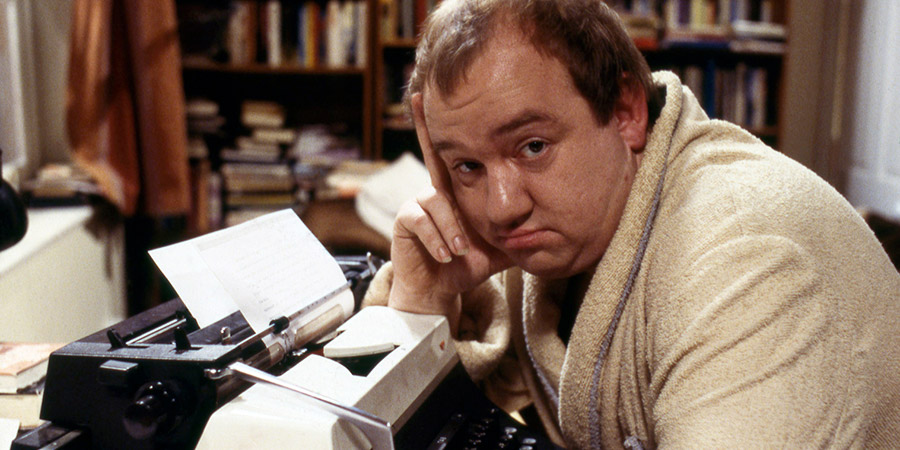
Mel Smith is known to a particular generation of comedy fans as an undisputed genius. He started his career as a theatre director, but it was Not The Nine O'Clock News that propelled him to stardom. The Python of the early eighties, Not The Nine O'Clock News started something of a comedy revolution; it was the series that ripped up the rule book just before The Young Ones came along to let Vyvyan stamp on all the little pieces; and it was on this pioneering sketch show that Mel Smith and Griff Rhys Jones came together to form a much-loved and long-lasting TV double act.
Perhaps it was the success of that brazen, yet undoubtedly brilliant Two Ronnies parody, The Two Ninnies, that somewhat ironically cemented the pair as the next big comedy duo. Amongst the foray of incredible comic talent that the sketch series showcased it was Griff and Mel who were constantly paired together, so going forward to make their own sketch series was a natural progression. In 1984 Alas Smith & Jones duly arrived on BBC2. Later reborn as simply Smith & Jones on BBC1, each episode packed full of punchy sketches that dabbled in just about every comic genre you could shake a stick at; all this was interlaced with Pete & Dud-style talking heads, which ultimately came to define the pair.
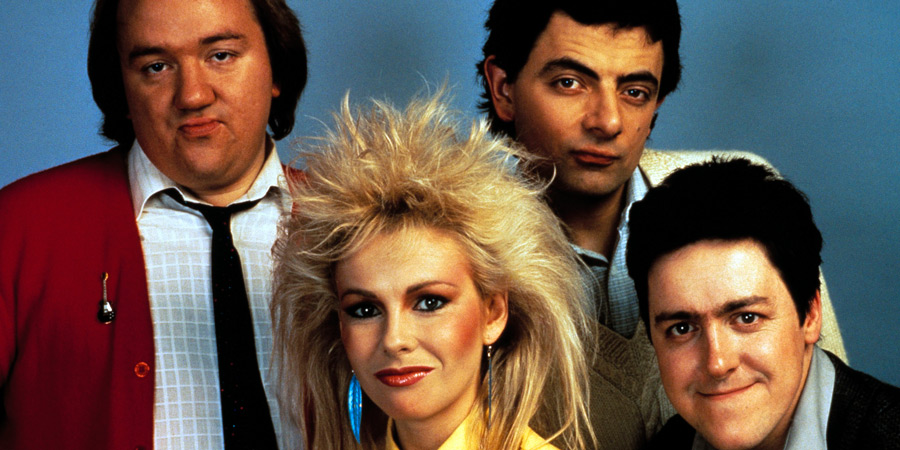
Today, you probably won't hear Smith & Jones mentioned alongside Morecambe & Wise, or indeed The Two Ronnies for that matter, yet they - alongside ITV equivalent Hale & Pace - were undoubtedly their alternative, anarchic 1980s counterparts. Smith & Jones captivated television audiences for almost fifteen years, from the mid-eighties all the way up to the late nineties, reaching viewing figures of around 10 million. There really aren't many comedians that have achieved that same level of staying power, particularly so whilst working exclusively within the sketch show genre.
However, it was in between one such series of their enduring sketch show (in 1988) that Mel Smith embarked on an ambitious solo sitcom that cast an astringent eye over the world of freelance writing. Colin's Sandwich (the slightly surreal name presumably a play on the principles used in writing, such as Chekhov's gun or Occam's razor), which would run for two series, puts us inside the head of Colin Watkins, an aspiring horror writer stuck in a dead-end job at the complaints department of British Rail.
What sets Colin's Sandwich apart from other sitcoms of the day is that we are literally hearing his thoughts (in a style aped much later by Peep Show). We, the audience, constantly hear Watkins's views on just about every situation - and most of the time he's an over-thinker, obsessing over every minor indiscretion he makes, his neuroses threatening to ruin him at every turn: he disrupts a perfectly lovely holiday because he can't stop thinking he's left the gas on; he doesn't pay attention in a vital pitch because he's too busy obsessing over falling to intervene when some unruly teens upset an old lady on the tube.
We've all experienced these things in real life, and we can relate to Colin easily. He's an everyman, and that interior monologue brought a revolutionary new spin on the standard sitcom protagonist. What a way to get to know our leading character to an almost immodest degree: this is the storytelling technique that would later make Peep Show so brilliantly compelling and catapult it to cult success. But it is often considered a relatively modern style of comedy, a tool that broke the mould and went hand-in-hand with sitcoms that dispensed with live studio audiences in the late nineties and early 2000s. However, the technique was used a lot earlier than even Colin's Sandwich.
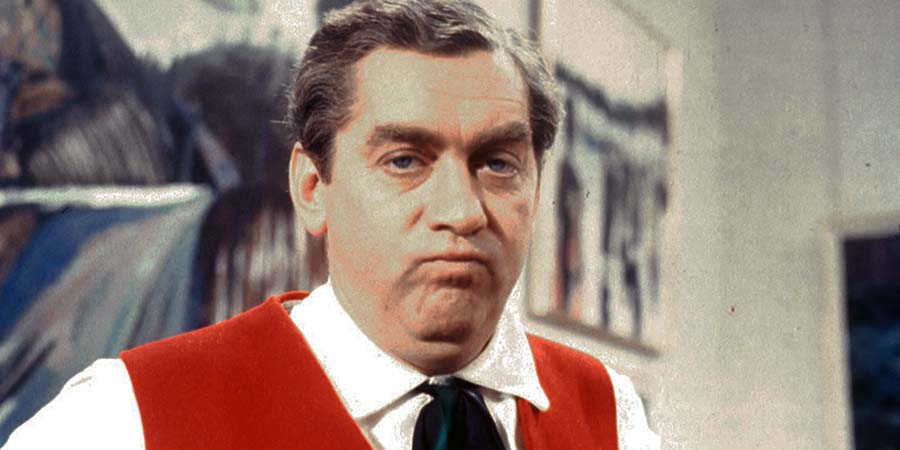
Perhaps one of the first and most effective uses of the interior monologue as a storytelling mechanism was in 1961 film The Rebel, starring Tony Hancock - one of Mel Smith's comedy heroes. As Hancock sits in a train carriage on the way to his miserable dead end office job, we feel his pain as he stares out the window, wondering if he could achieve his dreams of becoming a famous artist whilst casting judgement over the rest of his passengers (and then finally himself) with a certain ruthlessness that could only lie in uncensored thoughts - the whole principle on which Colin's Sandwich rests.
Mel Smith happened to be such an enormous Hancock fan, Kevin McNally recalled in a recent interview, that in 1980 he received a gleeful phone call from his friend: 'I've got a bit of a treat for us mate!' Smith told McNally. 'We were down in the archives of the BBC looking to make this documentary for my television company, and um... there was nobody there, so we... well, all of the VHSes are over there... so we recorded a load of Hancocks!' McNally laughed at the memory, 'They were completely bootlegged of course, it was ridiculous!' This happened many years before most TV episodes of Hancock's Half Hour received official home entertainment releases, going to show how much of a fan Mel Smith was.
The comparisons between Smith and Hancock in Colin's Sandwich itself are slight, but were enough for The Guardian to dub the star the 'Hancock of the 80s' based on the innovative style of the sitcom. It's the sheer attention to detail that Mel Smith gives to the performance that invokes Hancock, replete with bewildered blinks when things happen around him and grumpy hang-dog expressions. Yet despite drawing obvious inspiration from Tony Hancock in his performance, Smith didn't pen Colin's Sandwich himself: the show was written by Terry Kyan and Paul Smith, writers who were regular contributors to Alas Smith & Jones.

Clearly, this writing duo drew from their experiences of working in the industry, because as well as being a genuinely funny sitcom, Colin's Sandwich is a blisteringly accurate chronicle of a keen amateur trying to blag his way into a world he knows little about. At one point Colin is asked to write a treatment: he plays it casually, trying to fish for clues from his new boss, the director and film Impresario Alan Hunter (played by Nicholas Ball, who pitches the character as a wheeler-dealer Michael Caine-type) but he's too afraid to ask the most obvious question: 'A treatment?' he repeats back. 'Yep,' comes the reply. 'So... I'll have it for you by Friday...' He offers gingerly, but gets no help, he eventually leaves with no clue as to what a treatment actually is.
Colin's slow rise to semi-stardom charts all the worries that would concern a real-life writer, and often the situation comes before the comedy. He experiences dizzying highs and devastating lows, one minute thinking he'll quit his job and be a full-time writer, the next giving up on writing forever, even when he's got a writing gig! For a late-eighties sitcom Colin's Sandwich was seriously ahead of the curve of its contemporaries, dipping into drama quite often, and particularly so in the final few episodes.
Perhaps the greatest scene in the series sees Watkins absolutely lose it after being tasked with endless rewrites: he has just slaved away, poured blood, sweat and tears into a script specifically to meet one specific, strict deadline that set by his new boss, the superficially unpleasant Alan Hunter, only to discover that he has swanned off on holiday, leaving Colin's latest draft idling. Upon Hunter exiting the office so carelessly Colin lets rip, with weeks - or possibly years - of pent-up frustration fly out of him: 'How dare he?!' he shouts, only for Alan to walk back in stony-faced mere seconds later... However, this isn't really a cue for a gag - instead Alan wants to advise Colin of the harsh realities that go hand-in-hand with a career in the media industry. The studio audience maintain a respectful silence during this striking scene, and by the end you don't necessarily like Alan, but you do understand him and the whole situation certainly gives pause for thought.
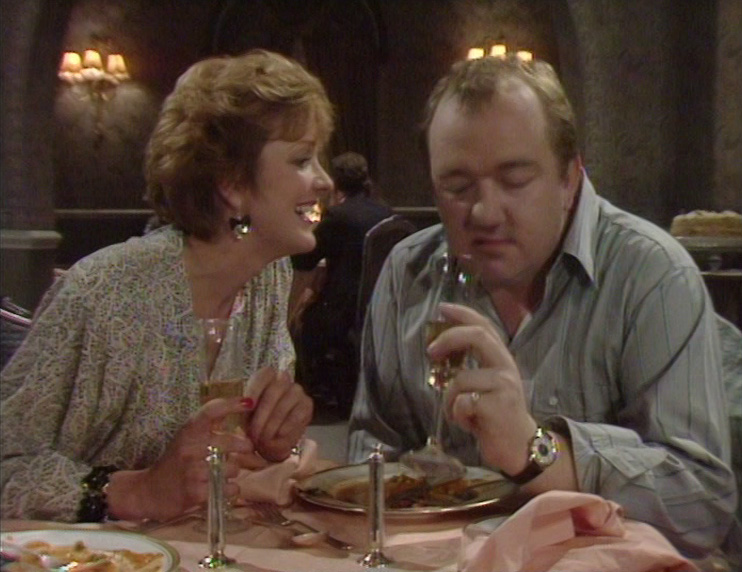
Throughout the series Colin is supported by his girlfriend, Jen, played by Louisa Rix (familiar to many Harry Enfield fans as 'Kevin's Mum', daughter of the brilliant farceur Lord Brian Rix and actress Elspet Gray, and sister of the series' co-producer and director, Jamie Rix). Their relationship isn't typical of a sitcom, being barely explored in the first series (where she could almost be that of a platonic friend), but eventually their partnership builds into a rather more obvious relationship. They get on each other's nerves as Colin uses her as his sole confidante and closest ally. All his workmates seem to despise him, and his only other friend is the carefree Des (Mike Grady, familiar to Last Of The Summer Wine fans as Barry and Citizen Smith fans as Ken).
Colin's monologue regularly punctuates any disagreements with Jen: Colin is often despairing of his own argument in his head, whilst still continuing to make it out loud. One night she wakes him up: 'Colin, there's somebody in the garden!'. He replies rationally, 'What are you talking about?' whilst we hear his interior monologue screaming 'Ahhhhh!'.
Still, realism remained at the core of Colin's Sandwich and at times the sitcom tips towards kitchen sink drama, and at other times goes full-on farce. 'What a barnstormer', Colin declares on more than one occasion. It could have been a catchphrase, but the show just didn't go for all the clichés of the studio audience sitcom - it wanted to try something rather different. The penultimate episode sees Annette Crosbie guest star as Colin's mother, and the series takes on the same comic tension so uniquely captured by David Renwick in One Foot In The Grave, another game-changing studio audience comedy, which debuted just as Colin's Sandwich neared its finale.
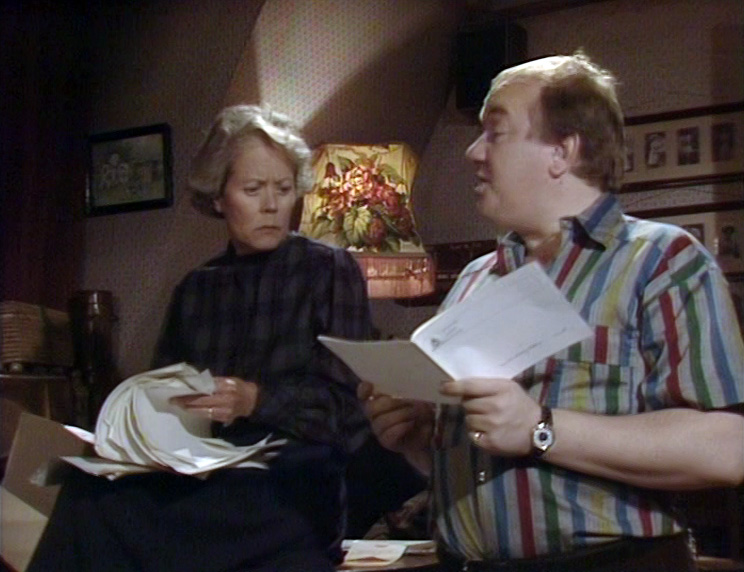
The series ended on a quiet note. Where there plans for another run? It's quite hard to tell. It could have continued, but its close does feel fitting. Colin's Sandwich is one of those unfortune sitcoms that, through no fault of its own, disappeared without leaving much of a trace, not benefitting from an endless stream of repeats, and only released on DVD after the untimely passing of Mel Smith in 2013, aged just 60. Before then loyal fans had relied, just as Smith had once done with Hancock's Half Hour, on bootlegs.
Whilst he was making Colin's Sandwich, Smith & Jones carried on producing new series, and indeed would continue to do so until 1998. Mel and Griff later reunited in 2006 to make The Smith & Jones Sketchbook, even recording some brand-new talking heads in front of that famous black background.
In an amusing twist back to The Two Ronnies, that series and duo they had attained such notoriety early in their careers for mocking, this series was made off the back of the success of the previous BBC reunion series, The Two Ronnies Sketchbook, which ended with Barker's death the previous year. Smith & Jones were well and truly the double act that had picked up the baton. The irony of this probably wouldn't have been lost on anyone involved, but sadly, the project would prove to be the last time the double act appeared on screen together.
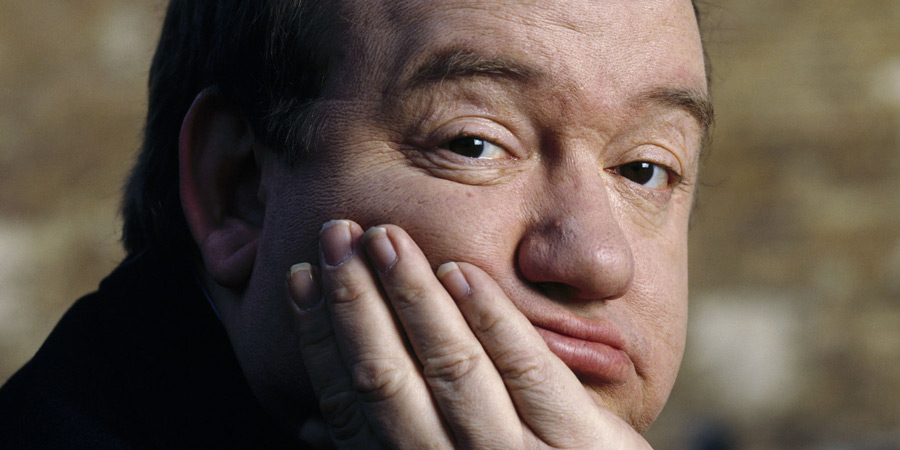
As for Colin's Sandwich, in a small way Colin Watkins was commemorated via Father Christmas in 1991 (sometimes called Father 'Blooming' Christmas), the classic Raymond Briggs animation that allows us to hear Father Christmas's thoughts: slightly more sedate thoughts than Watkins's, it has to be said, but there's no doubt Colin was the character that inspired Smith's casting and performance in the production.
Realism, drama, cringe comedy and interior monologues coupled with the harsh realities of trying to make it in the creative industry, Colin's Sandwich took one enormous bite out of every one of these genres decades before sitcoms such as Extras or Peep Show brought them to modern attention. Colin's Sandwich was simply a barnstormer of a sitcom that was way ahead of its time, and a testament to the comic acting abilities of the late, great Mel Smith.
Where to start?

Series 1, Episode 1 - Flaunt It
A storyline runs throughout Colin's Sandwich, meaning that it's best to start at episode one, where we meet Colin, on a mission to make his way into the world of publishing. His first task? Mention to the horror writer and publisher, John Langley (Michael Medwin) that he's an aspiring horror writer himself... but can he pluck up the courage to do it?
Help us publish more great content by becoming a BCG Supporter. You'll be backing our mission to champion, celebrate and promote British comedy in all its forms: past, present and future.
We understand times are tough, but if you believe in the power of laughter we'd be honoured to have you join us. Advertising doesn't cover our costs, so every single donation matters and is put to good use. Thank you.
Love comedy? Find out moreColin's Sandwich - The Complete Series 1 & 2

Mel Smith is best known for Not The Nine O'Clock News and Alas Smith & Jones. In this much loved 1980s BBC sitcom, the late comedian plays an aspiring writer stuck in a dead-end job.
Depressed Colin Watkins (Mel Smith) works for the British Rail Passenger Relations Office, otherwise known as the complaints department. He doesn't like his job much and has dreams of becoming a full-time writer, toiling late into the night trying to realise his ambitions.
Distracting him are his girlfriend Jenny, best friend Des, and the obnoxiously happy couple Richard and Sarah. He takes a step towards achieving his ambition when one of his short stories is accepted for publication in The Langley Book of Horror.
In Series 2, a famous film producer offers Colin the chance of adapting his short story for a film. Colin jumps at the chance but disruptions in various guises continue to derail him, and keep him tied to the desk job.
First released: Monday 9th June 2014
- Distributor: Simply Media
- Region: 2
- Discs: 2
- Minutes: 360
- Subtitles: English
- Catalogue: 139243
![]() Buy and sell old and new items
Buy and sell old and new items
Search for this product on eBay
BCG may earn commission on sales generated through the links above.

